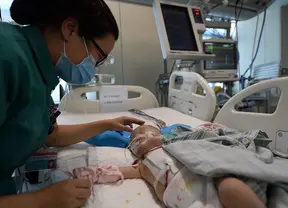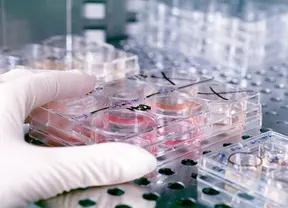
DutchhealthcarecompanyPhilipshasagreedtobuyU.S.-basedSpectraneticsCorp,amakerofdevicestotreatheartdisease,for1.9billioneuros($2.16billion)includingdebt,asitexpa

On Valentine's Day, the world celebrates love by being bombarded with red and pink hearts — heart-shaped candies, heart-shaped cards and more. But why?

A class action lawsuit against Fitbit may have grown teeth following the release of a new study that claims the company's popular heart rate trackers are "highly inaccurate."

Doctors in southwest China's Chongqing Municipality have completed surgery on a 112-day old boy with an extremely rare condition: Part of his heart was outside his chest.

U.S. researchers said Thursday they turned skin cells into heart cells and brain cells using just a combination of chemicals, a breakthrough that may lay the foundation for one day regenerating lost or damaged cells with pharmaceutical drugs.

Doctors in east China's Jiangsu Province recently used a 3D-printed heart to plan a surgery for a nine-month old baby with congenital heart disease.

Finland's first artificial heart transplant performed successfully

The shorter you are, the more your risk of coronary heart disease, according to a new study out Wednesday that attributed the link in part to genetics, rather than purely to nutrition or lifestyle factors.

Gut bacteria can turn a nutrient found in red meat into metabolites that increase the risk of developing heart disease, according to a U.S. study out Tuesday that may lead to new strategies for safeguarding individuals' cardiovascular health.

U.S. researchers said Wednesday they have developed a simple blood test that can detect heart- transplant rejection weeks or months earlier than previously possible.

Researchers have discovered 14 new genetic variations that are associated with heart rate, according to a study published online Sunday in the journal Nature Genetics.

Eating three or more servings of blueberries and strawberries per week may help women reduce their risk of a heart attack by as much as one-third, researchers reported Monday in Circulation: Journal of the American Heart Association.